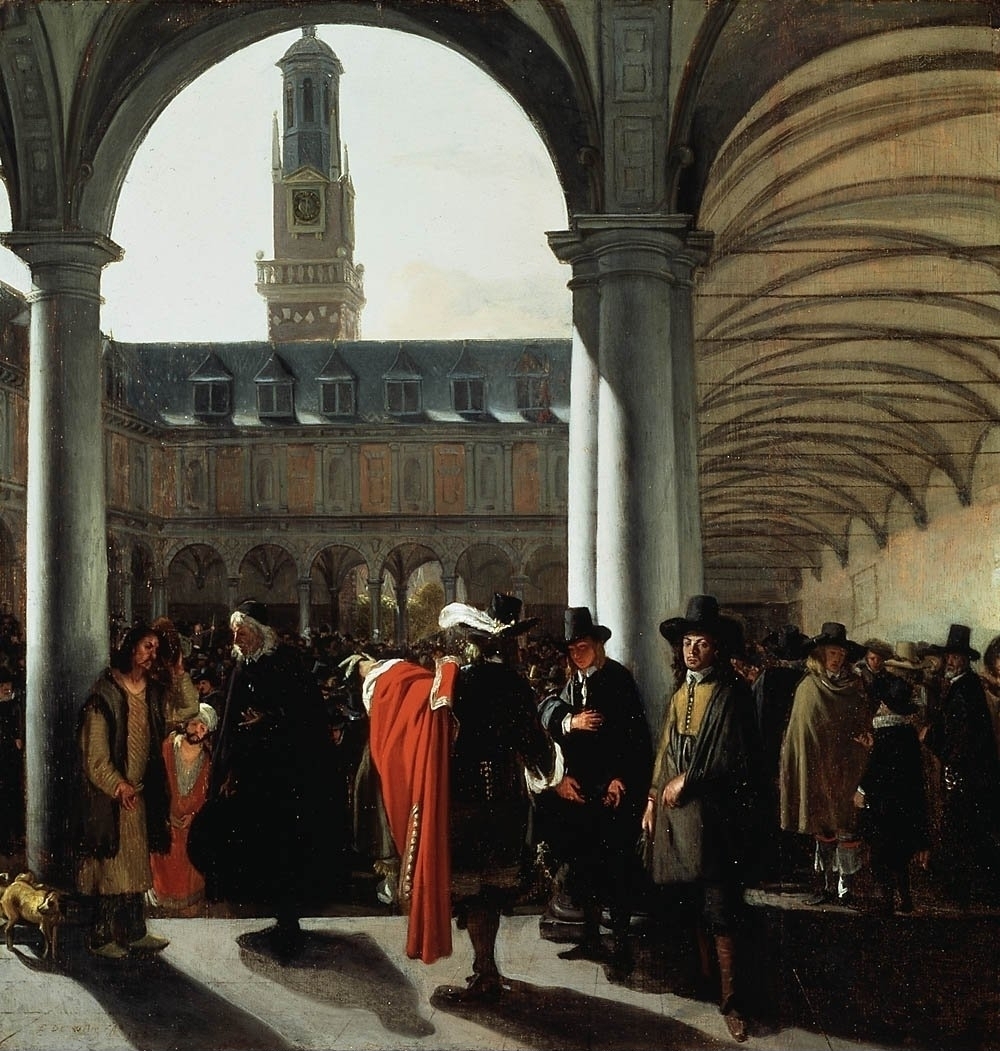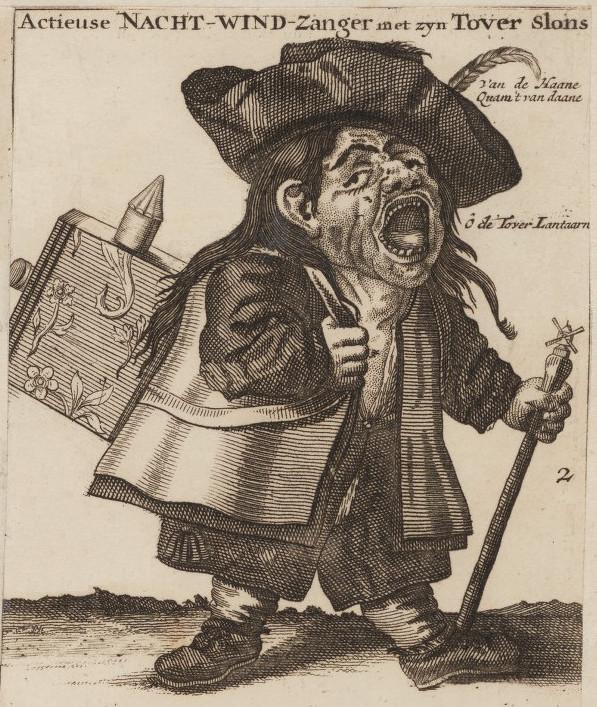|
Irrational Exuberance
"Irrational exuberance" is the phrase used by the then- Federal Reserve Board chairman, Alan Greenspan, in a December 1996 speech given at the American Enterprise Institute during the dot-com bubble of the 1990s. The phrase was interpreted as a warning that the stock market might be overvalued. Origin Greenspan's comment was made during a televised speech on December 5, 1996 (emphasis added in excerpt): The Tokyo market was open during the speech and immediately moved down sharply after this comment, closing off 3%. Markets around the world followed. Greenspan wrote in his 2008 book that the phrase occurred to him in the bathtub while he was writing a speech. The irony of the phrase and its aftermath lies in Greenspan's widely held reputation as the most artful practitioner of Fedspeak, often known as Greenspeak, in the modern televised era. The speech coincided with the rise of dedicated financial TV channels around the world that would broadcast his comments live, such as ... [...More Info...] [...Related Items...] OR: [Wikipedia] [Google] [Baidu] [Amazon] |
Federal Reserve Board
The Board of Governors of the Federal Reserve System, commonly known as the Federal Reserve Board, is the main governing body of the Federal Reserve System. It is charged with overseeing the Federal Reserve Banks and with helping implement the monetary policy of the United States. Governors are appointed by the president of the United States and confirmed by the Senate for staggered 14-year terms.See It is headquartered in the Eccles Building on Constitution Avenue, N.W. in Washington, D.C. Statutory description By law, the appointments must yield a "fair representation of the financial, agricultural, industrial, and commercial interests and geographical divisions of the country". As stipulated in the Banking Act of 1935, the chair and vice chair of the Board are two of seven members of the Board of Governors who are appointed by the president from among the sitting governors of the Federal Reserve Banks. The terms of the seven members of the Board span multiple presidential ... [...More Info...] [...Related Items...] OR: [Wikipedia] [Google] [Baidu] [Amazon] |
2000s Commodities Boom
The 2000s commodities boom, commodities super cycle or China boom was the rise of many physical commodity prices (such as those of food, oil, metals, chemicals and fuels) during the early 21st century (2000–2014), following the Great Commodities Depression of the 1980s and 1990s. The boom was largely due to the rising demand from emerging markets such as the BRIC (economics term), BRIC countries, particularly China during the period from 1992 to 2013, as well as the result of concerns over long-term supply availability. There was a sharp down-turn in prices during 2008 and early 2009 due to the 2008 financial crisis and European debt crisis, but prices began to rise as demand recovered from late 2009 to mid-2010. Oil began to slip downwards after mid-2010, but peaked at $101.80 on 30 and 31 January 2011, as the Egyptian revolution of 2011 broke out, leading to concerns over both the safe use of the Suez Canal and overall security in Arabia itself. On 3 March, Libya's National Oi ... [...More Info...] [...Related Items...] OR: [Wikipedia] [Google] [Baidu] [Amazon] |
1996 In American Television
In American television in 1996, notable events included television show debuts, finales, cancellations, and channel initiations, closures and rebrandings, as well as information about controversies and disputes. Notable events January February March April May June July August September October November December Television programs Debuts Returning this year Ending this year Made for TV movies and miniseries Entering syndication this year Changes of network affiliation Networks and services Launches Conversions and rebrandings Closures Television stations Station launches Stations changing network affiliation Station closures Births Deaths See also * 1996 in the United States * List of American films of 1996 References External linksList of 1996 American television seriesat IMDb IMDb, historically known as the Internet Movie Database, is an online database of information related to films, t ... [...More Info...] [...Related Items...] OR: [Wikipedia] [Google] [Baidu] [Amazon] |
1996 In Economic History
1996 was designated as: * International Year for the Eradication of Poverty Events January * January 8 – A Zairean cargo plane crashes into a crowded market in the center of the capital city of the Democratic Republic of the Congo, Kinshasa, killing around 300 people. * January 9– 20 – Serious fighting breaks out between Russian soldiers and rebel fighters in Chechnya. * January 11 – Ryutaro Hashimoto, leader of the Liberal Democratic Party, becomes Prime Minister of Japan. * January 13 – Italy's Prime Minister, Lamberto Dini, resigns after the failure of all-party talks to confirm him. New talks are initiated by President Oscar Luigi Scalfaro to form a new government. * January 14 – Jorge Sampaio is elected President of Portugal. * January 16 – President of Sierra Leone Valentine Strasser is deposed by the chief of defence, Julius Maada Bio. Bio promises to restore power following elections scheduled for February. * January 19 ** Th ... [...More Info...] [...Related Items...] OR: [Wikipedia] [Google] [Baidu] [Amazon] |
Stock Market Bubble
A stock market bubble is a type of economic bubble taking place in stock markets when market participants drive stock prices above their value in relation to some system of stock valuation. Behavioral finance theory attributes stock market bubbles to cognitive biases that lead to groupthink and herd behavior. Bubbles occur not only in real-world markets, with their inherent uncertainty and noise, but also in highly predictable experimental markets. Other theoretical explanations of stock market bubbles have suggested that they are rational, intrinsic, and contagious. History Historically, early stock market bubbles and crashes have their roots in financial activities of the 17th-century Dutch Republic, the birthplace of the first formal (official) stock exchange and market in history. The Dutch tulip mania, of the 1630s, is generally considered the world's first recorded speculative bubble (or economic bubble). Examples Two famous early stock market bubbles were the ... [...More Info...] [...Related Items...] OR: [Wikipedia] [Google] [Baidu] [Amazon] |
Fear Of Missing Out
Fear of missing out (FOMO) is the feeling of apprehension that one is either not in the know about or missing out on information, events, experiences, or life decisions that could make one's life better. FOMO is also associated with a fear of regret, which may lead to concerns that one might miss an opportunity for social interaction, a novel experience, a memorable event, profitable investment, or the comfort of loved ones. It is characterized by a desire to stay continually connected with what others are doing, and can be described as the fear that deciding not to participate is the wrong choice. FOMO could result from not knowing about a conversation, missing a TV show, not attending a wedding or party, or hearing that others have discovered a new restaurant. In recent years, FOMO has been attributed to a number of negative psychological and behavioral symptoms. FOMO has increased in recent times due to advancements in technology. Social networking sites create many opportunit ... [...More Info...] [...Related Items...] OR: [Wikipedia] [Google] [Baidu] [Amazon] |
Extraordinary Popular Delusions And The Madness Of Crowds
''Extraordinary Popular Delusions and the Madness of Crowds'' is an early study of crowd psychology by Scottish journalist Charles Mackay, first published in 1841 under the title ''Memoirs of Extraordinary Popular Delusions''. The book was published in three volumes: "National Delusions", "Peculiar Follies", and "Philosophical Delusions". A second edition appeared in 1852, reorganizing the three volumes into two and adding numerous engravings. Mackay was an accomplished teller of stories, though he wrote in a journalistic and somewhat sensational style. The subjects of Mackay's debunking include alchemy, crusades, duels, economic bubbles, fortune-telling, haunted houses, the Drummer of Tedworth, the influence of politics and religion on the shapes of beards and hair, magnetisers (influence of imagination in curing disease), murder through poisoning, prophecies, popular admiration of great thieves, popular follies of great cities, and relics. Present-day writers on economic ... [...More Info...] [...Related Items...] OR: [Wikipedia] [Google] [Baidu] [Amazon] |
Bitcoin
Bitcoin (abbreviation: BTC; Currency symbol, sign: ₿) is the first Decentralized application, decentralized cryptocurrency. Based on a free-market ideology, bitcoin was invented in 2008 when an unknown entity published a white paper under the pseudonym of Satoshi Nakamoto. Use of bitcoin as a currency began in 2009, with the release of its open-source software, open-source implementation. In 2021, Bitcoin in El Salvador, El Salvador adopted it as legal tender. It is mostly seen as an investment and has been described by some scholars as an economic bubble. As bitcoin is pseudonymous, Cryptocurrency and crime, its use by criminals has attracted the attention of regulators, leading to Legality of cryptocurrency by country or territory, its ban by several countries . Bitcoin works through the collaboration of computers, each of which acts as a Node (networking), node in the peer-to-peer bitcoin network. Each node maintains an independent copy of a public distributed ledger of ... [...More Info...] [...Related Items...] OR: [Wikipedia] [Google] [Baidu] [Amazon] |
Nobel Prize
The Nobel Prizes ( ; ; ) are awards administered by the Nobel Foundation and granted in accordance with the principle of "for the greatest benefit to humankind". The prizes were first awarded in 1901, marking the fifth anniversary of Alfred Nobel, Alfred Nobel's death. The original Nobel Prizes covered five fields: Nobel Prize in Physics, physics, Nobel Prize in Chemistry, chemistry, Nobel Prize in Physiology or Medicine, physiology or medicine, Nobel Prize in Literature, literature, and Nobel Peace Prize, peace, specified in Nobel's will. A sixth prize, the Nobel Memorial Prize in Economic Sciences, Prize in Economic Sciences, was established in 1968 by Sveriges Riksbank (Sweden's central bank) in memory of Alfred Nobel. The Nobel Prizes are widely regarded as the most prestigious awards available in their respective fields.Nobel Prize#Shalev69, Shalev, p. 8. Except in extraordinary circumstances, such as war, all six prizes are given annually. Each recipient, known as a laur ... [...More Info...] [...Related Items...] OR: [Wikipedia] [Google] [Baidu] [Amazon] |
Tulip Mania
Tulip mania () was a period during the Dutch Golden Age when contract prices for some bulbs of the recently introduced and fashionable tulip reached extraordinarily high levels. The major acceleration started in 1634 and then dramatically collapsed in February 1637. It is generally considered to have been the first recorded speculative bubble or asset bubble in history. In many ways, the tulip mania was more of a then-unknown socio-economic phenomenon than a significant economic crisis. It had no critical influence on the prosperity of the Dutch Republic, which was one of the world's leading economic and financial powers in the 17th century, with the highest per capita income in the world from about 1600 to about 1720. The term ''tulip mania'' is now often used metaphorically to refer to any large economic bubble when asset prices deviate from intrinsic values. Forward markets appeared in the Dutch Republic during the 17th century. Among the most notable was one centred ... [...More Info...] [...Related Items...] OR: [Wikipedia] [Google] [Baidu] [Amazon] |
The Daily Show With Jon Stewart
''The'' is a grammatical article in English, denoting nouns that are already or about to be mentioned, under discussion, implied or otherwise presumed familiar to listeners, readers, or speakers. It is the definite article in English. ''The'' is the most frequently used word in the English language; studies and analyses of texts have found it to account for seven percent of all printed English-language words. It is derived from gendered articles in Old English which combined in Middle English and now has a single form used with nouns of any gender. The word can be used with both singular and plural nouns, and with a noun that starts with any letter. This is different from many other languages, which have different forms of the definite article for different genders or numbers. Pronunciation In most dialects, "the" is pronounced as (with the voiced dental fricative followed by a schwa) when followed by a consonant sound, and as (homophone of the archaic pronoun '' the ... [...More Info...] [...Related Items...] OR: [Wikipedia] [Google] [Baidu] [Amazon] |







